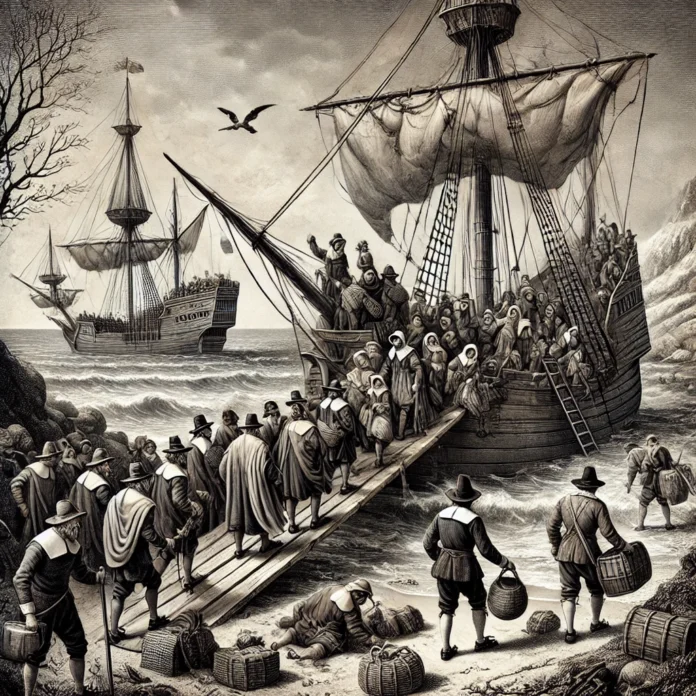On December 18, 1620, the Mayflower Pilgrims disembarked at Plymouth, Massachusetts, laying the foundation for one of the most influential settlements in American history. After a treacherous two-month journey across the Atlantic, these English settlers sought religious freedom and a new beginning in an unfamiliar land.
The Journey to Plymouth
The Mayflower, carrying 102 passengers and a crew of about 30, left England in September 1620. The voyage was fraught with hardship—storms damaged the ship, food supplies were limited, and many suffered from disease. Initially aiming for the Virginia Colony, navigational challenges and rough seas forced the Mayflower northward, landing on the shores of Cape Cod in November.
After scouting the area for weeks, the Pilgrims finally decided on a suitable location at Plymouth Harbor, known for its natural protection and proximity to freshwater sources.
The Significance of Plymouth
The arrival at Plymouth marked the beginning of a settlement deeply tied to the American narrative of perseverance and self-governance. Before disembarking, the Pilgrims signed the Mayflower Compact, a groundbreaking agreement that established a rudimentary form of democracy and pledged cooperation for the good of the colony. This document is often celebrated as a precursor to the principles enshrined in the U.S. Constitution.
The Harsh First Winter
The initial months were brutal. Plymouth’s rocky shores and unfamiliar terrain offered little respite. The Pilgrims faced starvation, exposure, and disease during their first winter, leading to the deaths of nearly half the original settlers. Yet, they endured, thanks in part to the help of the Wampanoag people, who taught them essential survival skills, such as planting corn and fishing.
Legacy and Controversy
The story of the Pilgrims’ landing has become a cornerstone of American folklore, symbolizing freedom, faith, and perseverance. However, it is also a complex tale involving displacement and the subsequent marginalization of Native populations. The Wampanoag’s crucial aid to the settlers eventually led to their land being encroached upon, foreshadowing the broader conflicts between European settlers and Indigenous peoples.
A Moment That Echoes Through Time
The landing at Plymouth continues to be commemorated, most famously during Thanksgiving, a holiday that traces its origins to the Pilgrims’ 1621 harvest feast with the Wampanoag. Though the historical accuracy of the “first Thanksgiving” remains debated, the spirit of cooperation and survival endures in American culture.
Conclusion
The Mayflower Pilgrims’ arrival at Plymouth stands as a landmark moment in early American history, illustrating both the hope and hardship of colonization. It serves as a reminder of the complexities of our shared past, urging us to honor both the triumphs and the struggles that have shaped our present.




